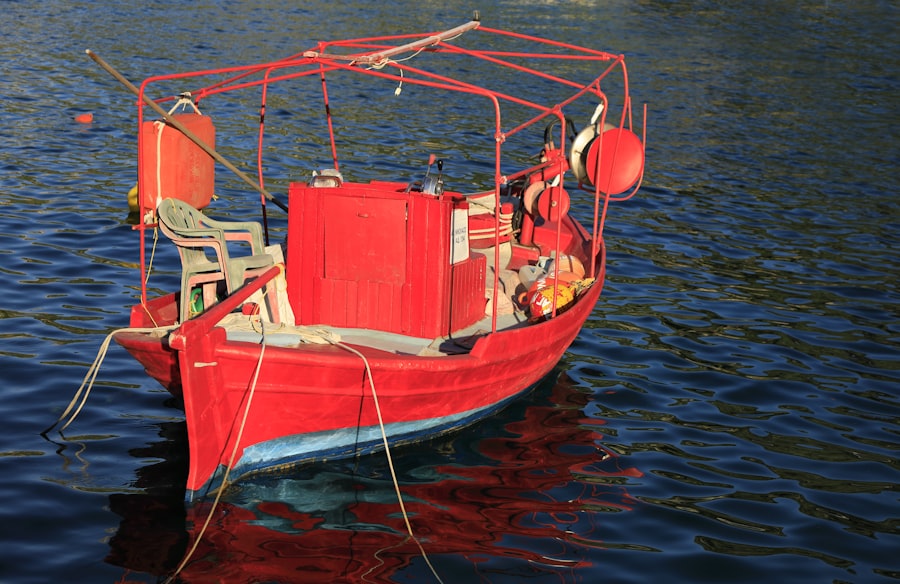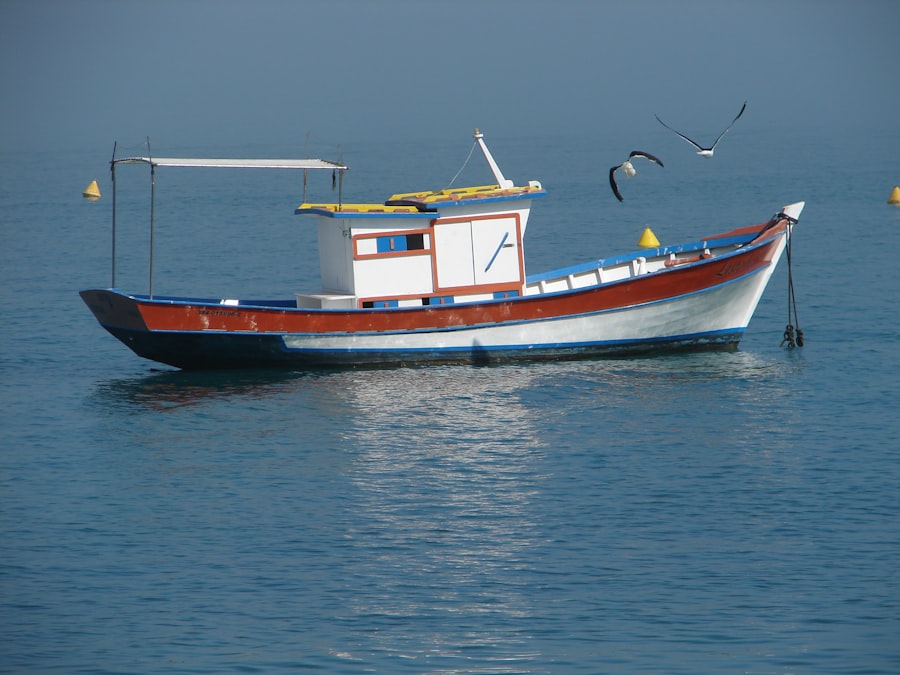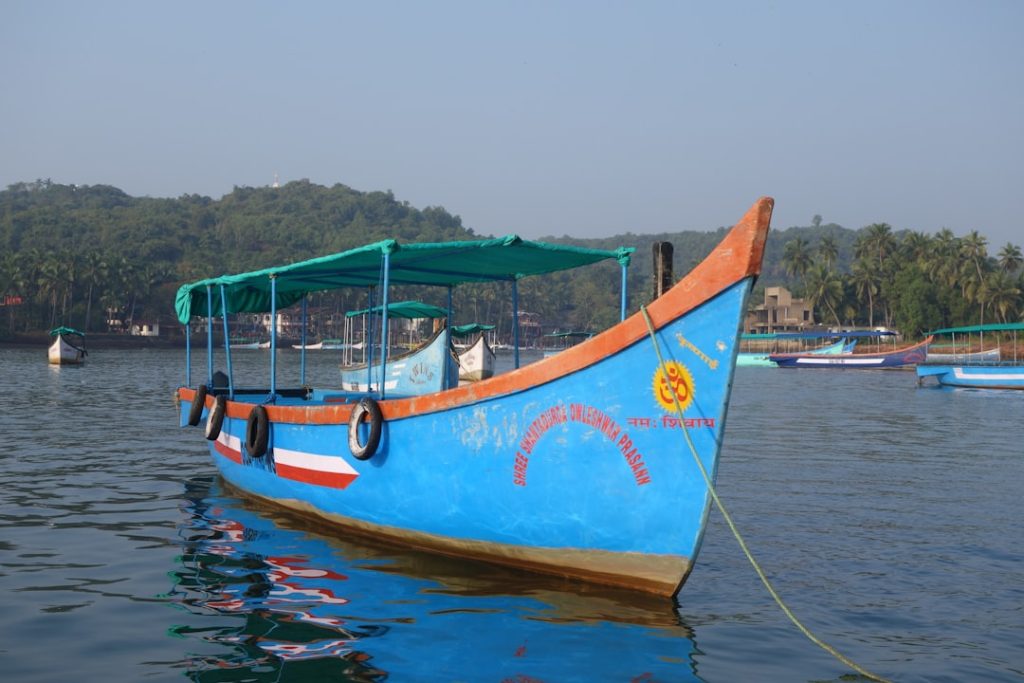When embarking on the journey to purchase a fishing boat, the first step is to clearly define your specific needs and preferences. The type of fishing you intend to pursue plays a crucial role in determining the right boat for you. For instance, if you are an avid angler who enjoys deep-sea fishing, you will require a vessel that is robust enough to handle rough waters and equipped with the necessary amenities for extended trips.
Conversely, if your fishing activities are limited to freshwater lakes or rivers, a smaller, more maneuverable boat may suffice. Understanding these distinctions is essential in narrowing down your options. Additionally, consider the number of people you typically fish with.
A boat that accommodates just one or two anglers will differ significantly from one designed for larger groups. The layout and size of the boat should facilitate comfort and accessibility for all passengers. Furthermore, think about the storage requirements for your fishing gear, coolers, and any other equipment you may need.
A well-planned approach to your fishing boat needs will not only enhance your fishing experience but also ensure that you make a sound investment.
Key Takeaways
- Identify your specific fishing needs to choose the right boat type and features.
- Conduct thorough research on available fishing boats, both new and used.
- Search locally to find fishing boats for sale near your area for easier inspection and purchase.
- Carefully evaluate used boats for condition, maintenance history, and potential repairs.
- Inspect the boat thoroughly and negotiate terms before finalizing the purchase.
Researching Fishing Boats for Sale
Once you have a clear understanding of your fishing boat needs, the next step is to conduct thorough research on available options. The internet has revolutionized the way potential buyers can access information about fishing boats. Numerous websites specialize in listing boats for sale, complete with detailed specifications, photographs, and pricing information.
Websites like Boat Trader, YachtWorld, and Craigslist can provide a wealth of options, allowing you to filter by type, size, and price range. In addition to online resources, local boat shows and expos can be invaluable for hands-on research. These events often feature a wide array of boats from various manufacturers, allowing you to compare models side by side.
Engaging with sales representatives can also provide insights into the latest technologies and features available in modern fishing boats. Furthermore, reading reviews and testimonials from other boat owners can offer a realistic perspective on the performance and reliability of different models.
Locating Fishing Boats for Sale Near You

Finding fishing boats for sale in your vicinity can significantly streamline the purchasing process. Local dealerships often have a selection of new and used boats, and visiting these establishments allows you to inspect the vessels in person. Additionally, local classifieds and community bulletin boards can be excellent resources for discovering privately listed boats.
Many anglers prefer selling their boats within their local communities, which can lead to better deals and more transparent negotiations. Networking within local fishing communities can also yield valuable leads on available boats. Joining fishing clubs or online forums dedicated to angling can connect you with fellow enthusiasts who may know of boats for sale or even be looking to sell their own.
Social media platforms have become increasingly popular for buying and selling boats, with dedicated groups where members post listings and share recommendations. By leveraging these resources, you can increase your chances of finding the perfect fishing boat close to home.
Evaluating Used Fishing Boats
| Metric | Description | Typical Range | Importance |
|---|---|---|---|
| Boat Age | Number of years since the boat was manufactured | 1 – 30 years | High |
| Engine Hours | Total hours the engine has been operated | 100 – 2000 hours | High |
| Hull Condition | Physical state of the boat’s hull (e.g., cracks, dents) | Excellent, Good, Fair, Poor | High |
| Fishing Equipment | Type and condition of fishing gear included | Basic to Advanced setups | Medium |
| Fuel Efficiency | Fuel consumption rate per hour or mile | 1 – 5 gallons/hour | Medium |
| Storage Capacity | Space available for storing catch and gear | Small, Medium, Large | Medium |
| Safety Features | Presence of life jackets, radios, flares, etc. | Basic to Comprehensive | High |
| Maintenance History | Records of repairs and regular upkeep | Complete, Partial, None | High |
| Price | Asking price for the used fishing boat | Varies widely | High |
When considering a used fishing boat, it is essential to conduct a thorough evaluation to ensure that you are making a wise investment. Start by examining the boat’s overall condition, including the hull, engine, and interior components. Look for signs of wear and tear, such as cracks in the hull or corrosion on metal parts.
A well-maintained boat will typically show minimal signs of damage and will have been serviced regularly. In addition to physical inspection, it is crucial to review the boat’s maintenance history. Request documentation that outlines any repairs or upgrades made over the years.
This information can provide insight into how well the previous owner cared for the vessel and whether any significant issues have been addressed. If possible, take the boat for a test run to assess its performance on the water. Pay attention to how it handles, accelerates, and responds to steering inputs.
A thorough evaluation will help you avoid potential pitfalls associated with purchasing a used boat.
Considering New Fishing Boat Options
While used fishing boats can offer great value, exploring new options may also be worthwhile if your budget allows it. New boats come with the advantage of modern technology and warranties that can provide peace of mind regarding repairs and maintenance. Manufacturers often incorporate innovative features designed to enhance safety, fuel efficiency, and overall performance.
For example, many new fishing boats now come equipped with advanced fish-finding technology and GPS systems that can significantly improve your fishing experience. When considering new boats, it is essential to evaluate different brands and models based on your specific needs. Researching manufacturer reputations and customer reviews can help you identify which companies produce reliable vessels that meet your expectations.
Additionally, visiting dealerships allows you to explore various configurations and customization options that may be available for new boats. This hands-on experience can be invaluable in determining which features are most important to you.
Negotiating the Purchase of a Fishing Boat

Once you have identified a potential fishing boat that meets your needs, the next step is negotiating the purchase price. Whether you are dealing with a private seller or a dealership, effective negotiation skills can save you a significant amount of money. Start by researching comparable boats in your area to establish a fair market value for the vessel you are interested in.
This information will empower you during negotiations and help you make informed offers. When negotiating, approach the conversation with confidence but remain respectful. Be prepared to articulate why you believe a lower price is justified based on your research and any issues identified during your evaluation of the boat.
If dealing with a dealership, inquire about any ongoing promotions or financing options that may be available. Often, dealerships are willing to negotiate on price or throw in additional accessories or services to close the deal.
Inspecting a Fishing Boat Before Buying
Before finalizing your purchase, conducting a comprehensive inspection of the fishing boat is crucial to ensure that it meets your expectations and is free from hidden issues. If you are not experienced in marine mechanics or boat maintenance, consider hiring a professional marine surveyor who can provide an expert assessment of the vessel’s condition. A surveyor will examine critical components such as the hull integrity, engine performance, electrical systems, and safety equipment.
During your inspection, pay close attention to details that may indicate underlying problems. Check for leaks in the hull or engine compartment, inspect all electrical connections for corrosion or wear, and ensure that safety equipment such as life jackets and fire extinguishers are present and up to date. Additionally, verify that all necessary documentation is in order, including registration papers and any warranties that may still be valid.
A thorough inspection will help safeguard your investment and ensure that you are making an informed decision.
Finalizing the Purchase of Your Fishing Boat
After successfully negotiating the price and completing your inspection, it is time to finalize the purchase of your fishing boat. This process typically involves signing a bill of sale that outlines the terms of the transaction, including the agreed-upon price and any contingencies related to inspections or repairs. Ensure that all necessary paperwork is completed accurately to avoid complications down the line.
If purchasing from a dealership, they will often handle much of the paperwork for you, including title transfers and registration with local authorities. However, if buying from a private seller, it is essential to verify that all documentation is in order before completing the transaction. Once everything is signed and payment has been made, take some time to familiarize yourself with your new vessel before hitting the water.
Understanding its features and capabilities will enhance your overall experience as you embark on countless fishing adventures ahead.


